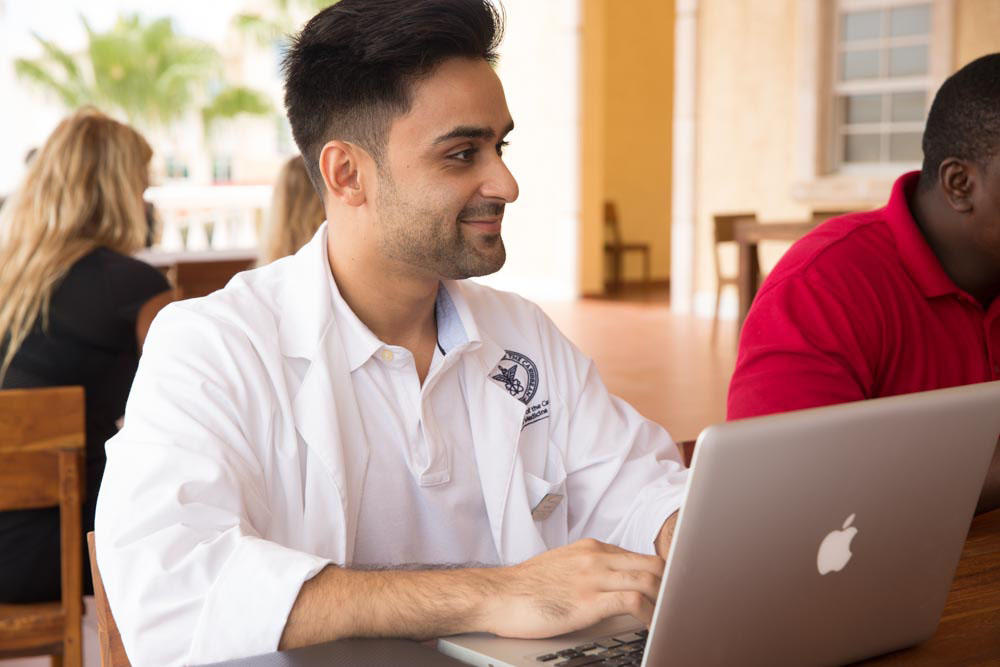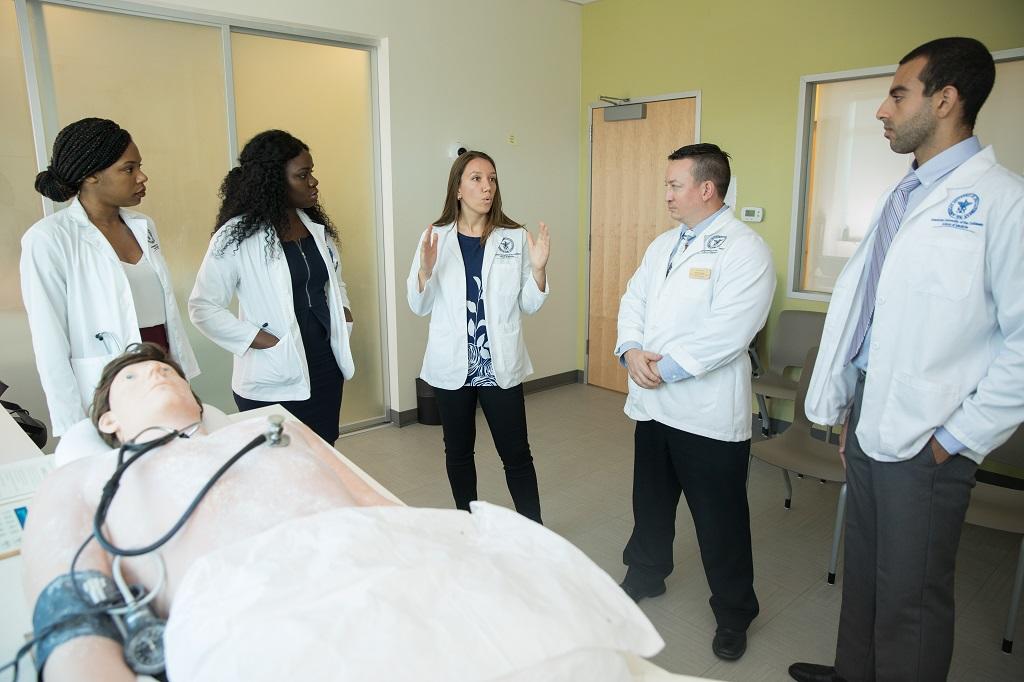Many students interested in attending a Caribbean medical school—and practicing medicine in the United States or Canada may be wondering: are medical schools in the Caribbean accredited, and if so how are Caribbean medical schools accredited?
If a Caribbean medical school is accredited that means the school meets the functional and structural standards for medical education in their region. Prospective students who wish to practice in the United States or Canada should also make sure that the regional accreditation meets the standards of theLiaison Committee on Medical Education (LCME), the accreditation authority for medical schools in the United States and Canada that provide Doctor of Medicine (MD) degrees.
Students of properly accredited Caribbean medical schools—such as the American University of the Caribbean School of Medicine (AUC)*—have the same privileges as students of medical schools in the United States and Canada. They may qualify for federal student loans through the U.S. Department of Education. They may register with the Educational Commission for Foreign Medical Graduates® (ECFMG®) to take the United States Medical Licensing Examination® (USMLE®). They may also move on to medical residencies accredited by the Accreditation Council for Graduate Medical Education (ACGME), the residency authority in the United States and Canada.
Accreditation is crucial:
- Has the medical school established its mission and institutional learning objectives?
- Do the medical school’s curriculum and resources meet its mission and objectives?
- Is the medical school achieving its mission and objectives and is it likely to continue to achieve them in the future?
ARE CARIBBEAN MEDICAL SCHOOLS LCME ACCREDITED?
AUC, located in Sint Maarten, the Dutch side of the island of Saint Martin, is accredited by The Accreditation Commission on Colleges of Medicine (ACCM)—an authority recognized by the U.S. National Committee on Foreign Medical Education and Accreditation (NCFMEA) as meeting LCME standards. The ACCM is also recognized by the international authority on medical school standards, the World Federation for Medical Education (WFME). The ACCM accredits eight Caribbean medical schools and one in the Middle Eastern nation of Jordan. It has accredited AUC since 1995.
So exactly how are Caribbean medical schools accredited? ACCM accreditation is a rigorous, peer-review process that examines all aspects of a medical program. The ACCM board, an independent and autonomous body of professionals, only certifies medical schools which are operating at the highest levels of industry standards. Through this accreditation, ACCM provides assurance to healthcare institutions, the medical profession, medical students and graduates, and the public that programs leading to qualifications in medicine meet appropriate national and international standards for educational quality, and that the graduates have a sufficiently complete and valid educational experience.
The ACCM is not the only accreditation authority among the Caribbean Islands. Schools among the member states of the Caribbean Community are accredited by the Caribbean Accreditation Authority for Education in Medicine and other Health Professionals (CAAM-HP).
CARIBBEAN MEDICAL SCHOOL ACCREDITATION PROCESS, PROCEDURE, AND SYSTEM
The first step in the ACCM accreditation process is a formal request for assessment. For AUC, this took place in the mid 1990’s. After a medical school pays application fees and submits required documents—such details as courses, clerkships (clinical training), enrollment, facilities, faculty, resources, and an institutional self-study—ACCM officials arrive to perform the assessment and determine the school’s accreditation merits. The ACCM accreditation procedure is based on the system used by the LCME.
When seeking the answer to the question: how are Caribbean medical schools accredited, it is important to note the various characteristics that are necessary for a school to have. An accredited medical school must meet all 12 LCME standards regarding such aspects as curricular content, faculty, learning environment, organization, and structure, as well as student selection, services, and support.
Accredited schools must also help students through financial aid, debt management counseling, and reasonable tuition refund policies. Schools are accredited for a period of five or six years, after which time ACCM repeats the accreditation procedure through a survey to ensure the school continues to meet all standards. AUC’s accreditation status is good through the end of 2021—an ACCM survey will be conducted again in the near future.
OTHER APPROVALS IN THE CARIBBEAN MED SCHOOL ACCREDITATION PROCESS
Now that you know the answer to the question: how are Caribbean medical schools accredited? It is important to note additional approvals that may come along with it. After LCME or ACCM accreditation, medical school approvals may also come at the state level. Individual states may review an international medical school much in the same way that ACCM or the LCME do.
AUC graduates complete their clerkships in any of 17 affiliated teaching hospitals spread across eight U.S. states (as well as at six hospitals in the United Kingdom), and AUC graduates are eligible for licensure in all 50 states.
But the individual states of California, Florida, New York, and Texas have reviewed AUC independently and found it to meet their rigorous medical school standards. Most states do not conduct such reviews, but those states often defer to the approvals of California or other states that do.
The ACCM-accredited American University of the Caribbean School of Medicine trains tomorrow’s physicians, whose service to their communities and their patients is enhanced by international learning experiences, a diverse learning community, and an emphasis on social accountability and engagement. Take the next step toward becoming a physician: apply for admission to AUC.
Related resources:
- AUC School of Medicine Accreditation
- AUC School of Medicine Statistics
- Clinical Rotations in the US & UK
- Why Go to Med School in the Caribbean?




